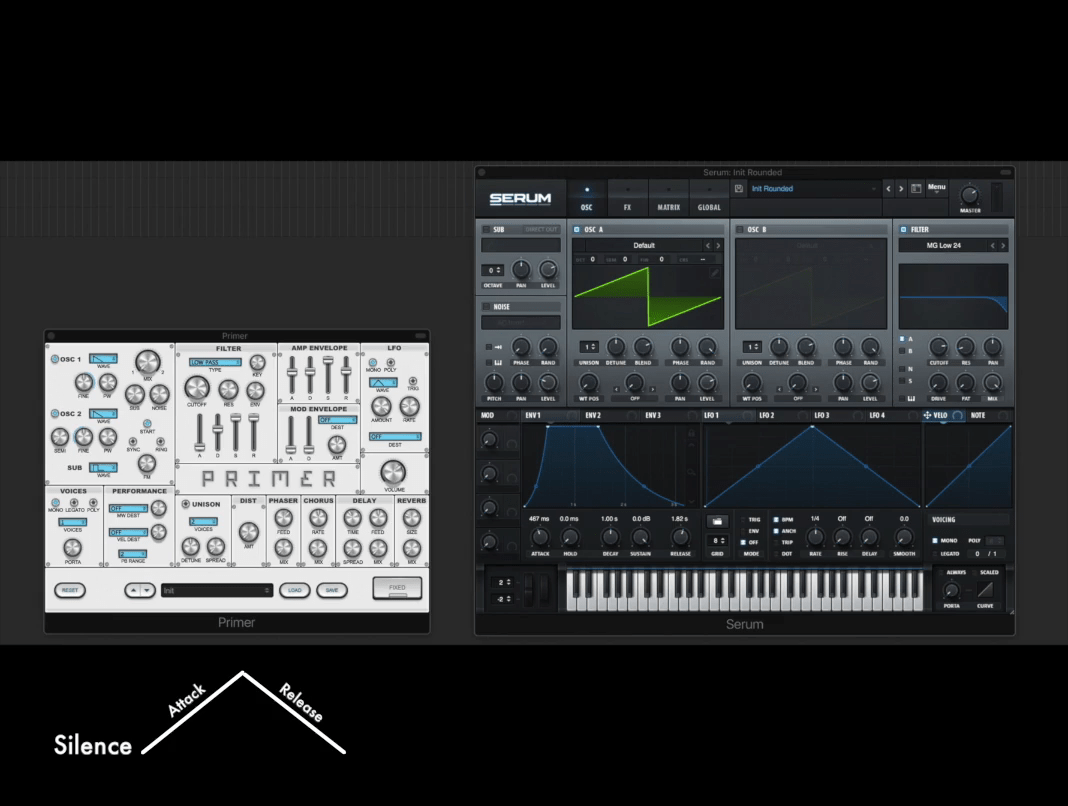
If you want to be a mixing or mastering engineer, and work for other producers, artist, labels, and so on, you can spend all of your time geeking out over your mixes, your software, and so on. However, you probably won’t get to perform. If you want to be a songwriter or ghost writer for other artists, you can skip the fame and just work in the studio. You can’t simply make music and hope for the best. You’ll also need to develop your creativity and uniqueness, as well as market yourself and make connections. If you want to be an artist, you’ll need to be prepared for some level of fame (assuming you’re successful). You need to think through your various options and their consequences. It’s not something you can figure out with a notebook and pen in a coffee shop. While it sounds easy, figuring out what you want can be surprisingly difficult. Therefore, before you can properly apply Anders’ learning strategies, you must get clear on exactly where you want to go with your music production career. If you don’t know where you want to go, it’s impossible to learn effectively. I can’t stress how important this first step is. – Alice’s Adventures in Wonderland, Chapter 6 “Then it doesn’t matter which way you go,” said the Cat. “That depends a good deal on where you want to get to,” said the Cat. “Would you tell me, please, which way I ought to go from here?” However, I’ve added in step 1, clarity, because it’s crucial that you figure out your destination before you create your learning plan.
#Syntorial skip how to
I’ll explain the 4-step process first, alongside quotes and insights from my interview with Anders, and then I’ll provide some examples so you know exactly how to apply it to your own music production career.Īnders research relates mostly to steps 2, 3 and 4 that is, obstacles, deliberate practice, and adjustments.
#Syntorial skip pdf
(I’ve also created a PDF checklist of this process. The 4-Step CODA Processįor the sake of simplicity, I’ve broken down my learning process into a simple 4-step process that uses the acronym CODA: In this article and interview with Anders Ericsson, you’ll discover how to make the same kind of progress that I made, while working on your music only 3-4 hours a day. “…the reason John has made more progress in 12 months than anyone else I’ve ever seen is because of his systematic/deliberate approach to learning.” In a recent case study about my rapid progress with music production, Sam said that:
#Syntorial skip professional
In other words, you do not need to grind for 12 hours a day for 4+ years to make music that sounds professional – IF you approach your learning correctly. Now, let’s fast forward 14 months, to March 2017. It’s nowhere near good enough for the club, YouTube or any respectable label. Vocals are not processed (or recorded) properly. That was shortly after I began producing.

What sort of progress can you expect with Anders Ericsson’s learning strategies?

This article is about that interview, and how to apply Anders’ strategies to electronic music production. With Anders being the world’s preeminent expert on elite performance and mastery, I decided to interview him on how to apply his research to become great at electronic music production. Rather, it grew out of a misunderstanding of Anders’ research (Malcolm Gladwell, a famous author, coined the phrase). In Peak, he explains that it’s not a rule at all. Maybe you’ve heard of the 10,000 hour rule? The “10,000 hour rules” states that the only way to become a master of something is to practice it for 10,000 hours.Īnders Ericsson is the scientist who did the research behind the “10,000 hour rule”. Peak explains the latest findings from the new science of expertise (and it’s extremely helpful for aspiring music producers).


He recently teamed up with Robert Pool, a renowned science, technology and medical writer, to author the fantastic book Peak. He made a name for himself studying chess champions, violin virtuosos, star athletes and memory mavens. If you want to make great music that touches hearts and makes people feel something – whether they’re dancing in a nightclub or relaxing in their living room – there’s one guy you need to pay attention to above all others:Īnders Ericsson is the world’s preeminent expert on learning and elite performance. From “aha” to “oh shit”, John’s sharing everything on his journey to 100,000 fans.


 0 kommentar(er)
0 kommentar(er)
